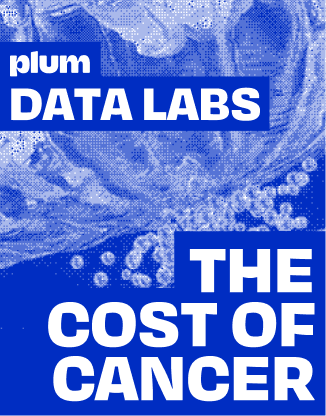Anaemia
A condition where your blood lacks enough healthy red blood cells, causing tiredness, weakness, or pale skin.
Apo‑B
A type of cholesterol marker that gives a clearer picture of your risk for heart disease than total cholesterol alone.
ASCVD Score
A tool that calculates your 10‑year risk of heart attack or stroke.
Assay Sensitivity
How good a lab test is at detecting even tiny amounts of a substance.
Autoimmune Markers
Tests that detect if your immune system is mistakenly attacking your own body.
Bilirubin
A yellow pigment made during red‑blood‑cell breakdown; high levels can signal liver or bile‑duct problems.
BMI
Body‑mass index, a quick ratio of weight to height that screens for underweight, overweight, and obesity.
Blood Urea Nitrogen (BUN)
A waste‑product measure that tells you how well your kidneys are clearing urea from the blood.
Calcium
A mineral essential for bone health; too much or too little may indicate hormonal or kidney issues.
CBC
Complete blood count, a panel that measures red cells, white cells, and platelets to flag infections, anaemia, or clotting problems.
Creatinine
A muscle‑waste marker; elevated levels can signal impaired kidney filtration.
CRP
C‑reactive protein, an inflammation marker that can flag infection, injury, or chronic disease risk.
Electrolytes
Minerals like sodium, potassium, and chloride that keep nerves firing and muscles moving; imbalances can be serious.
eGFR
Estimated glomerular filtration rate, a calculation that shows how efficiently your kidneys filter blood.
Fasting Blood Sugar (FBS)
The amount of glucose in your blood after an overnight fast; high values hint at diabetes risk.
Ferritin
A protein that stores iron; low ferritin often means iron‑deficiency anaemia, high ferritin can signal inflammation.
Gamma GT (GGT)
A liver‑enzyme test that helps spot bile‑duct problems and alcohol‑related liver injury.
HbA1c
Glycated haemoglobin, a three‑month average of blood‑sugar control; key for diabetes management.
HDL‑C
High‑density lipoprotein cholesterol, the “good” cholesterol that helps clear fat from arteries.
Hemoglobin
The oxygen‑carrying protein in red blood cells; low levels lead to anaemia symptoms.
Insulin Fasting
The level of insulin in your blood after fasting; high levels can indicate insulin resistance.
LDL‑C
Low‑density lipoprotein cholesterol, the “bad” cholesterol that can build plaque in arteries.
Liver Function Tests (LFTs)
A group of enzymes (ALT, AST, ALP) that show how well your liver is working.
Magnesium
A mineral critical for muscle and nerve function; imbalances affect heart rhythm and energy.
Platelet Count
The number of clot‑making cells in your blood; too low raises bleeding risk, too high raises clotting risk.
PPBS
Post‑prandial blood sugar, the glucose level two hours after a meal; used to diagnose diabetes.
PSA
Prostate‑specific antigen, a protein whose high levels may flag prostate enlargement or cancer.
RBC Count
The number of red blood cells; abnormalities can point to anaemia or bone‑marrow issues.
SGOT (AST)
An enzyme that rises when liver or heart cells are damaged.
SGPT (ALT)
A liver enzyme; elevated levels signal liver injury or disease.
T3
Tri‑iodothyronine, an active thyroid hormone that controls metabolism.
T4
Thyroxine, the main hormone produced by the thyroid; imbalances affect energy and weight.
Total Cholesterol
The sum of HDL, LDL, and VLDL cholesterol; used to gauge overall heart‑disease risk.
Total Protein
Measures albumin plus globulin; low or high values can reflect liver, kidney, or immune issues.
Triglycerides
Blood fats stored for energy; high levels pair with low HDL and insulin resistance.
TSH
Thyroid‑stimulating hormone, the pituitary signal that tells your thyroid how much hormone to make.
Uric Acid
A breakdown product of purines; high levels can cause gout or kidney stones.
Vitamin B12
A vitamin essential for nerves and red‑blood‑cell formation; deficiency can cause fatigue and tingling.
Vitamin D
A hormone‑like vitamin that keeps bones strong and immunity robust; deficiency is widespread.
VLDL‑C
Very‑low‑density lipoprotein cholesterol, a carrier of triglycerides that contributes to plaque build‑up.
WBC Count
White blood cells that fight infection; high or low counts help diagnose immune conditions.
.avif)










.avif)











